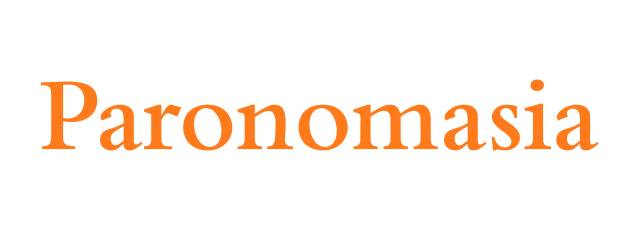Paronomasia
Noun
- A play on words; a pun.
Example Sentences
“The stand-up comedian’s clever paronomasia had the audience groaning and laughing simultaneously.”
“She found her grandfather’s near-constant paronomasia endearing, even if the puns were terrible.”
“The English teacher used paronomasia to help students remember complicated literary terms.”
Word Origin
Greek, late 16th century
Why this word?
“Time flies like an arrow; fruit flies like a banana.” Excuse us for the pun, but this is an example of paronomasia, or a play on words. “Paronomasia” comes from Latin, based on the ancient Greek “paronomasía,” meaning “play upon words which sound alike.” While puns have sometimes been called the lowest form of humor, there can be some sophisticated wordplay involved in paronomasia. The essence of a classic pun is not just a word with multiple meanings, but one in which the conflicting meanings all sound plausible. Paronomasia often employs homophones (“When I realized my favorite jeans were fading, I felt like dyeing”), homographs (“I shed a tear when I saw the tear in my shirt”), and homonyms (“The bare bear bared its teeth”).
top picks in Inbox Studio network
Word Daily is part of Inbox Studio, which publishes content that uplifts, informs, and inspires.











 Subscribe to Better Report
Subscribe to Better Report

